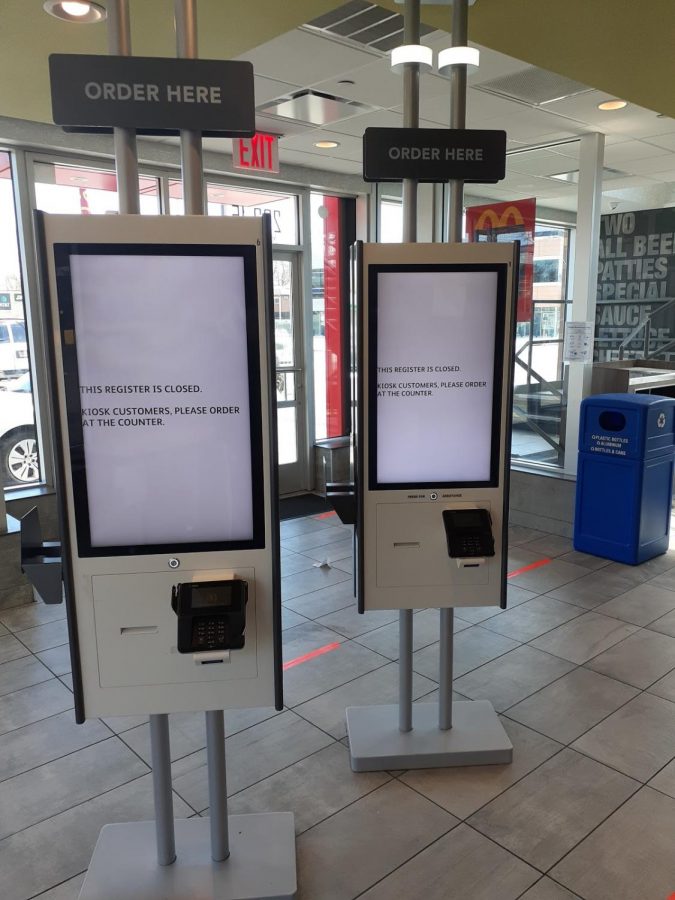A City Deserted During the Coronavirus Pandemic
New York City is known as the city that never sleeps. But what happens when it is the epicenter of COVID-19?
Normally bustling with activity, a McDonald’s restaurant is forced to adhere to social distancing guidelines, shutting down its kiosks for the foreseeable future.
A mother walks to her local supermarket and waits outside for half an hour in the chilly April weather before being let in. She dons an N-95 mask, two gloves, and cautiously avoids anyone who comes her way. She hurries around the supermarket, desperately trying to find what she needs. Her heart falls as she walks over to the fresh fruit section. Normally full, all that remains are a few fruits and vegetables of poor quality. Minutes later, she proceeds over to the checkout area, where a plastic barrier separates her from the cashier. The total cost is twenty-five dollars. This is over double what she would normally pay. She pays using food stamps, knowing that this purchase might her last purchase for weeks.
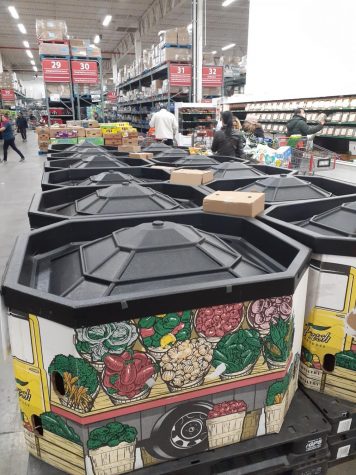
The fruit section of a BJ’s store is picked clean.
If one were looking at this scenario before March of 2020, it would have been reasonable to assume that one was in the midst of a natural disaster or living through the average day in one of the various socialist or authoritarian countries throughout the world. But this assumption would be wrong. This is now the daily life of a New Yorker during the 2020 Coronavirus pandemic. Resources are scarce, tensions are running high, and streets are empty. The whole city, it seems, has been deserted. Seen from above, the entire fruit section of a BJ’s store is devoid of any fruit.
But it is not just fresh produce that is running low. With meat production down 25% nationwide due to Coronavirus outbreaks in meat processing plants, products ranging from dairy to frozen foods are in short supply, and supermarkets often run out within hours of receiving new shipments. And of course, toilet paper is now considered a treasure. Frantic shoppers have stockpiled food, cleaning supplies, and much more. The stockpiling of large amounts of much-needed resources at home is making it difficult for the disadvantaged to obtain them. Tyson Foods, the world’s second-largest meat processor, warned that “the food supply chain is breaking.”
The pictures that I have taken of our city during the Coronavirus pandemic serve to illustrate these points. Shelves meant to hold paper towels and toilet paper are empty. Deprived of shipments, a Chinese supermarket’s fish and rice sections lie barren. An entire section of a shopping mall has been emptied out, with thousands of rolls of toiletries consumed in hours. “I think that people are being ridiculous,” said Chritina Gao ’21. “A well-to-do mother who has the money to buy 17 boxes of diapers and formula can buy them without thinking, but the mother who works two jobs and is barely making ends meet, now cannot afford to stockpile the way that other mother can.”
New York City has been all but shuttered. Small businesses have been particularly hard hit, with an estimated $3.2 billion in revenue lost alone by small businesses in the coming year, with approximately 43% of small businesses likely to close permanently by the end of this pandemic. Health and beauty businesses in New York have been hit the hardest, with 79% of them forced to close. And although essential businesses, which include restaurants, have been allowed to stay open, the meager income provided by takeout and delivery is not enough. As the daughter of two restaurant owners, Gao has seen the effects of coronavirus on the restaurant industry firsthand. “The financial losses that they experienced are simply too much to handle,” Gao said. “America’s small businesses are in extreme danger of dying out. Many are already gone, and they won’t return.”
No other event in living memory has affected the world like the 2019-20 Coronavirus pandemic. One would have to go back to the 1918 influenza pandemic for a similar impact and few alive today were present for it. The Coronavirus pandemic has disrupted what we considered ‘normal.’ When our world finally reopens, it will have been radically changed. But we will recover, and the world will come back, stronger than before. As President Ronald Reagan once said, “There are no constraints on the human mind, no walls around the human spirit.”
“America’s small businesses are in extreme danger of dying out. Many are already gone and they won’t return,” said Chritina Gao ’21.
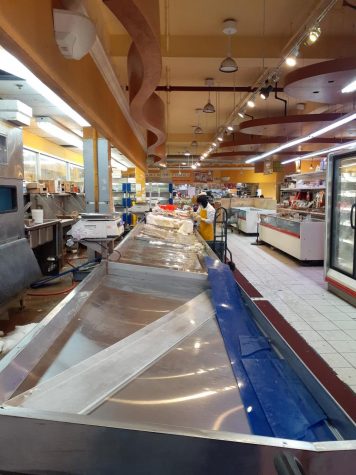
A fish market at a Chinese supermarket, which is normally stocked with hundreds of fish, is now merely an empty metal rack.
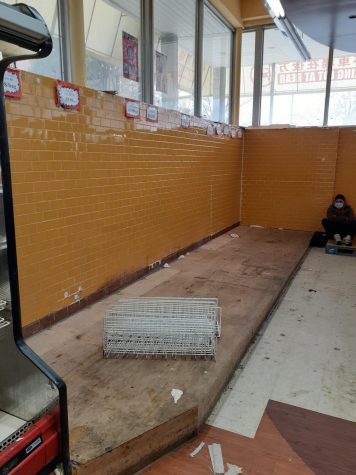
A worker gazes at what was once a towering mound of rice, now wondering how he will obtain food.
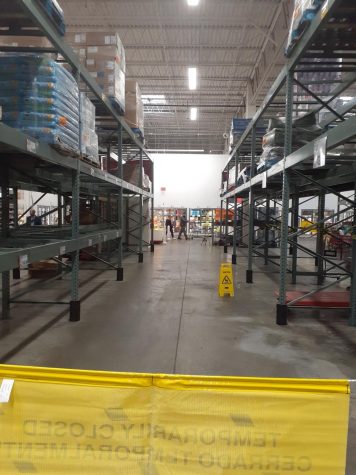
An entire section of BJs is closed off; thousands of rolls of toilet papers have been purchased by panicked shoppers within hours.
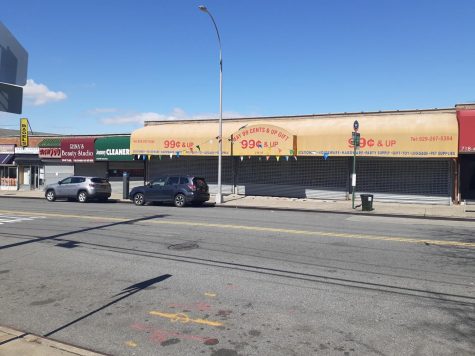
Theodore Wai is a News Editor for ‘The Science Survey.' Theodore finds writing and learning about the world to be the most appealing aspect of journalistic...

